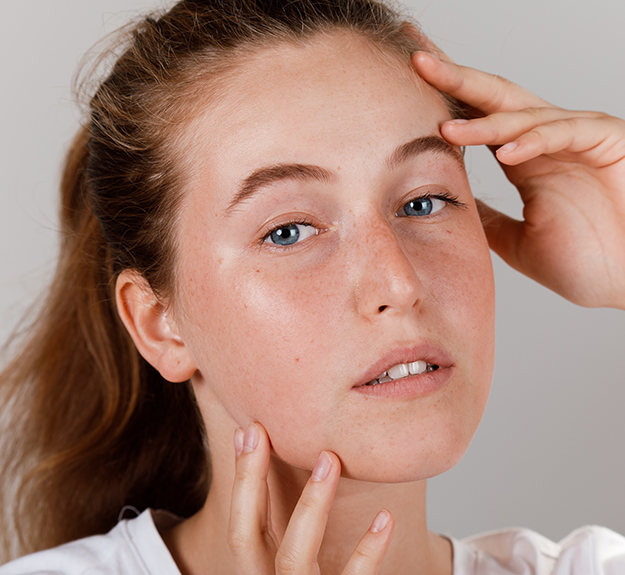Rosacea Treatment in Dubai is a common but often misunderstood skin condition that primarily affects the face. Characterized by persistent redness, visible blood vessels, and sometimes acne-like bumps, rosacea can significantly impact a person’s quality of life and self-esteem. Fortunately, while there is no cure for rosacea, effective strategies can help manage and alleviate its symptoms, leading to a clearer complexion. In this article, we will explore what rosacea is, its symptoms, triggers, and cost-effective ways to manage it.
Understanding Rosacea
Rosacea is a chronic inflammatory skin condition that affects an estimated 14 million Americans. It commonly manifests in adults, especially those with fair skin, and typically begins with intermittent redness on the cheeks, nose, chin, or forehead. Over time, the condition can worsen, leading to more pronounced redness and additional symptoms.

Symptoms of Rosacea
The symptoms of rosacea can vary from person to person, but they typically include:
Facial Redness: The most recognizable symptom, often resembling a flushed or sunburned appearance.
Visible Blood Vessels: Small, dilated blood vessels may become noticeable on the face.
Acne-like Bumps: Pustules and papules can develop, leading to discomfort and irritation.
Thickened Skin: In some cases, particularly in men, the skin can thicken, especially on the nose (a condition known as rhinophyma).
Eye Irritation: Rosacea can also affect the eyes, causing dryness, redness, and irritation, a condition known as ocular rosacea.
Triggers of Rosacea
Understanding and identifying triggers is crucial for managing rosacea effectively. Common triggers include:
Environmental Factors: Sun exposure, extreme temperatures, and humidity can exacerbate symptoms.
Dietary Choices: Spicy foods, alcohol, caffeine, and hot beverages are known to trigger flare-ups in some individuals.
Stress: Emotional stress can lead to increased redness and discomfort.
Skincare Products: Certain cosmetics and skincare products may irritate sensitive skin.
Hormonal Changes: Fluctuations in hormones, such as during menstrual cycles or menopause, can worsen symptoms.
Cost-Effective Strategies for Managing Rosacea
While managing rosacea can seem daunting, there are numerous cost-effective strategies you can employ to help achieve a clearer complexion.
1. Identify and Avoid Triggers
The first step in managing rosacea is identifying your specific triggers. Keeping a diary to track your symptoms and potential triggers can help you pinpoint what exacerbates your condition. Once you’ve identified your triggers, you can take proactive steps to avoid them, whether it’s changing your diet, altering your skincare routine, or adjusting your lifestyle.
2. Gentle Skincare Routine
A gentle skincare routine is vital for individuals with rosacea. Look for fragrance-free, hypoallergenic products specifically formulated for sensitive skin. Opt for gentle cleansers and moisturizers that soothe and hydrate the skin. Avoid products containing alcohol, exfoliating acids, or other harsh ingredients that can irritate your skin further.
3. Sun Protection
Sun exposure is a major trigger for rosacea flare-ups. Protecting your skin from the sun’s harmful rays is crucial. Use a broad-spectrum sunscreen with an SPF of 30 or higher daily, even on cloudy days. Wearing a wide-brimmed hat and seeking shade during peak sun hours can also help shield your skin.
4. Dietary Modifications
Making simple dietary changes can significantly impact rosacea management. Start by eliminating common trigger foods like spicy dishes, alcohol, and caffeine. Incorporating anti-inflammatory foods such as fruits, vegetables, and omega-3 fatty acids (found in fish and flaxseeds) can help reduce inflammation and promote skin health.
5. Stress Management Techniques
Managing stress is essential for overall well-being and can help reduce rosacea flare-ups. Consider practicing relaxation techniques such as yoga, meditation, or deep-breathing exercises. Regular physical activity can also help alleviate stress and improve your overall mood.
6. Natural Remedies
Several natural remedies may help soothe rosacea symptoms. For example, aloe vera gel can provide cooling relief, while green tea extract is known for its anti-inflammatory properties. Additionally, applying chamomile tea bags to the skin can help reduce redness and irritation.
7. Consult a Dermatologist
While many individuals can manage their rosacea with lifestyle changes and over-the-counter products, it’s essential to consult a dermatologist for personalized advice and treatment options. They may recommend prescription medications, topical treatments, or laser therapy to help control symptoms more effectively. Many dermatology clinics offer payment plans or sliding scale fees, making it more affordable to seek professional help.
Conclusion
Living with rosacea can be challenging, but with the right strategies, it is possible to achieve a clearer complexion and improve your quality of life. By identifying triggers, adopting a gentle skincare routine, protecting your skin from the sun, and making dietary and lifestyle modifications, you can take control of your rosacea. While it may require some trial and error to find what works best for you, the effort is well worth it for the sake of your skin and self-confidence. If symptoms persist, don't hesitate to seek professional guidance from a dermatologist. Remember, you’re not alone in this journey, and a clearer complexion is within reach.
